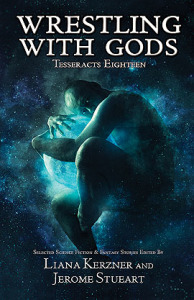A Guest Post by Jessica Brawner
In football, the kicker takes the field. He kicks the tiny oblong ball through the gigantic goalposts, and the crowd goes wild! Cheering, clapping, praise and acclaim! That’s what we all want; to hear that wild clapping when we achieve a goal, someone to praise us when we did well, to pat us on the back, or in the case of sports fans, dump a cooler full of Gatorade over our head. Right?
What if we missed? What if we didn’t make the goal? Do we get the dreaded mass groan and boo? Do we lose the whole game?
The answer in football is—sometimes. Thankfully the writing process is not a spectator sport, nor does it hinge on one decision. Our misses are seen only by ourselves and the editor who sent us the rejection letter. We all miss sometimes, and even the best kickers in history don’t have a perfect record. Do we beat ourselves up until we’re black and blue for every goal we didn’t make? (I hope not! That’s not much motivation to continue is it?)
So you missed your goal. WHY did you miss your goal? Take a few moments to re-evaluate and see where things went sideways.
Did you miss the deadline? What happened?
Was there a life event that got in the way? Or were you just not motivated enough to sit down and get the words out? Are you using the one as an excuse for the other? (Hint: life always gets in the way. Learn to work around it.) Try setting a reasonable daily word count. For some people this may be 200 words, for others it may be 2000. Look at your life circumstances and what you want to achieve with your writing and set a plan or a playbook that works for you.
Does your writing or storytelling need improvement?
Find a mentor, or take one of the many, many online (or in person!) classes available. Find one that focuses on what you need to improve. Go to a writing boot-camp!
Were your eyes too big for your stomach? (Or did you set a goal that you’re not ready to reach yet?) It’s great to aim for the really big prize; it’s how we ended up with airplanes and rockets and a host of other scientific and artistic inventions. Remember though, each large advancement required intermediate goals to reach the big prize. Make sure you are setting the mid-size goals as well as larger goals.
An example, I would like to put out a book of short stories at the end of next year and have my business, Story of the Month Club (www.storyofthemonthclub.com) to a level where we can pay authors professional rates. These are both large goals. To achieve the first I have joined a group to write 52 stories in 52 weeks. A story a week. Taken as a whole it’s intimidating, but broken down I have set a small goal for every week of next year. If I fail one week, I can succeed the next, and if I succeed enough times I will have enough stories for a book. Success or failure does not hinge on one goal.
For Story of the Month Club, it will probably take longer than a year, but I have laid out a plan and several strategies for progress. The point is to keep going, keep striving, and keep trying. (And try new things!)
If the kicker misses a field goal, the coach doesn’t beat him up about it (much); the coach makes him practice more. Good kickers practice and persevere until they can do their job with their eyes closed and one hand tied behind their back while facing down five defensive ogres. All skillsets require practice. Have patience with yourself. Set reasonable AND stretch goals. Have a playbook to guide you.
Jessica Brawner writes both fiction and non-fiction. Her first book, Charisma +1: The Guide to Convention Etiquette for Gamers, Geeks and the Socially Awkward was released through WordFire Press in 2014. You can find out more about Jessica on her website at www.jessicabrawner.com


